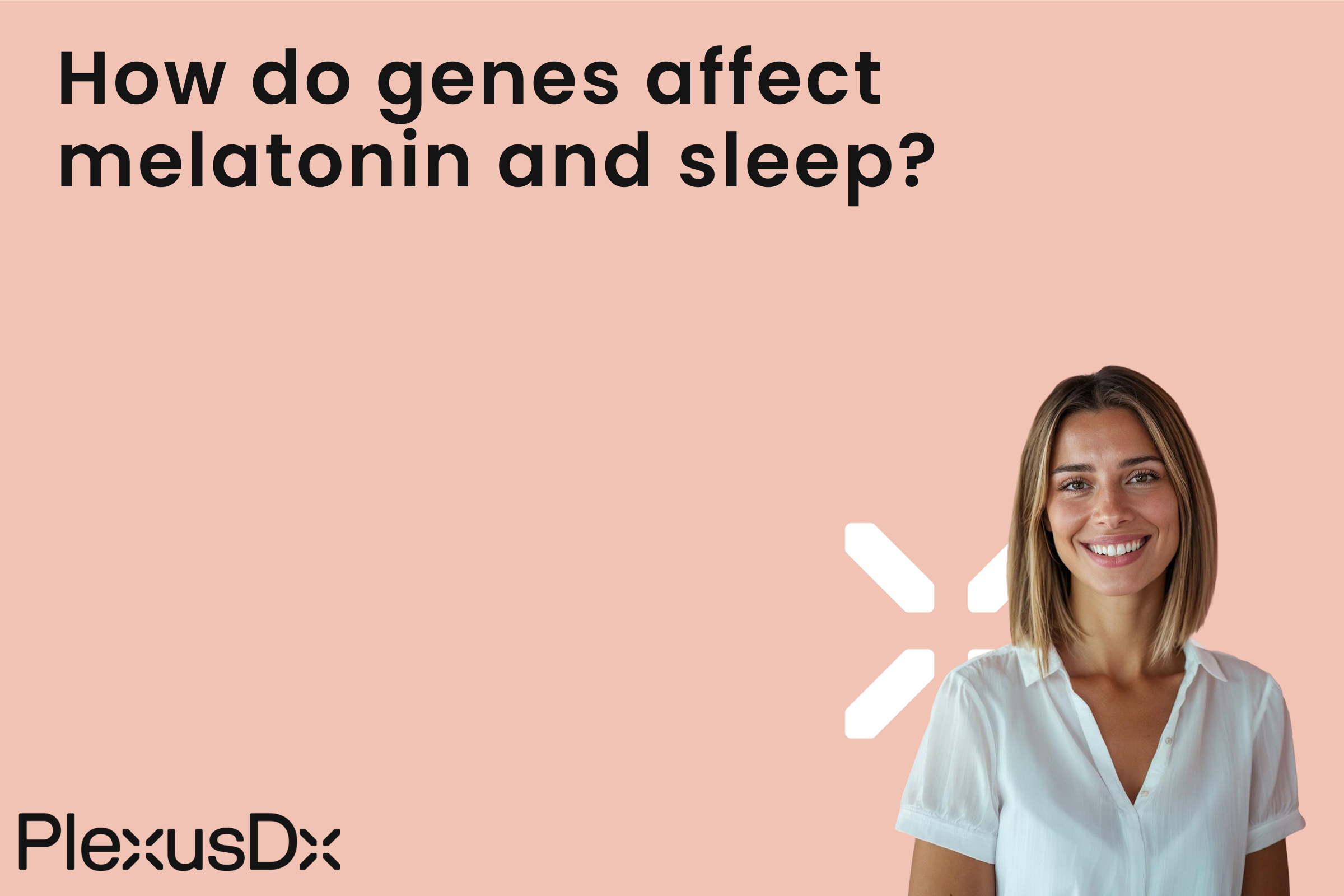Melatonin: The Genetic Influence on Sleep Quality and Health
Have you ever thought about why certain people fall asleep effortlessly while others have difficulty getting good rest? The answer might lie in your genes. The sleep-wake cycle regulator melatonin hormone significantly influences both sleep quality and overall health. This blog post examines melatonin's intriguing nature while demonstrating how genetic factors affect this vital hormone and its effects on our everyday life.
The pineal gland produces melatonin which is commonly known as the "sleep hormone" whenever the environment becomes dark. When daylight fades into twilight melatonin quantities in the bloodstream start to increase which signals our body to begin winding down for sleep. During nighttime melatonin levels stay high for about 12 hours to support restful sleep before they reduce to very low levels in daylight. Melatonin functions as a robust antioxidant beyond its sleep-wake cycle role and affects multiple health factors such as mood regulation and immune system strength. Any changes to melatonin production result in sleep problems and mood variations as well as fatigue and memory challenges which demonstrate the vital need for proper levels of this hormone.
Genetic components account for up to 80% of differences in melatonin levels between individuals. The production of melatonin in our bodies through specific genes affects our sensitivity to light and our sleep-wake patterns while also influencing brain functionality and mental health which illustrates the complex connection between genetic makeup and sleep behaviors.
Various external elements have the capacity to both increase and decrease melatonin levels in the body. Electronic devices emitting artificial light along with stress and consumption of caffeine, alcohol and tobacco may lower melatonin production which can lead to disturbed sleep quality. A lack of sunlight exposure along with liver problems and the use of specific medications or supplements can result in increased melatonin production which leads to daytime sleepiness and other negative side effects.
Genetic testing of melatonin levels offers important information about predispositions but requires careful interpretation of data. Existing scientific research on genetic models for melatonin is insufficient which necessitates further studies to derive stronger conclusions within this field. People who suffer from sleep problems and fatigue or mood swings potentially caused by melatonin deficiencies can naturally boost their melatonin levels through healthy sleep routines and lifestyle changes. A sleep-friendly environment and avoidance of artificial light before bedtime along with stress management and stimulant avoidance before sleep support healthy sleep patterns. By learning about how genetic factors influence melatonin production and sleep quality people can make better health and wellness decisions.
Customers who explore the Precision Health & Wellness tests available through PlexusDx at PlexusDx.com and on both Amazon and Walmart platforms will discover important genetic information about melatonin and other essential health indicators. Start managing your sleep health now to begin a path toward improved sleep and greater overall well-being. Enjoy good sleep and a healthy life while taking advantage of the personalized health insights PlexusDx provides.

Share:
Which mental health conditions link to 5-HTTLPR gene variant?
Can a Genetic Test Predict Response to Semaglutide for Weight Loss?